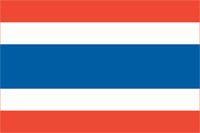
Tighter European Union controls governing imports of Thai vegetables are restricting volumes arriving into Europe, according to one exporter.
Only registered Thai exporters are permitted to ship exotic vegetables to Europe, and just five pest and pesticide residue breaches are now tolerated per year. These tough rules are deterring many shippers from supplying Europe, according to Chusak Chuenprayoth of leading exporter to the EU KC Fresh, and volumes arriving into wholesale markets are dwindling as a result.
“Exporting `Thai` exotics to Europe is very tough due to Europe's very strict sanitary and phytosanitary (SPS) measures,” he told Fruitnet.com.
EU regulations are so rigid that even some registered exporters have stopped shipping to Europe, Chuenprayoth said. This means European wholesale markets and restaurants are struggling to secure adequate volumes of Thai exotics.
“European regulations allow for only five counts of contamination per year, which just isn’t realistic," said Chuenprayoth. “EU countries should reconsider their SPS regulations and to be more realistic in their plant health demands.”
The EU threatened to ban imports of certain Thai vegetables in December 2010 following persistent findings of pests and excessive chemical residues.
The potential ban affected some 15 vegetable lines. However exports were allowed to continue on the condition that Thailand carry out self-imposed controls, and that no more than five breaches were detected per year.
Thai exotics shippers are also struggling with unfavourable exchange rates, rising airfreight costs, and a 30 per cent hike in labour costs from April 1 2012, added Chuenprayoth.






No comments yet